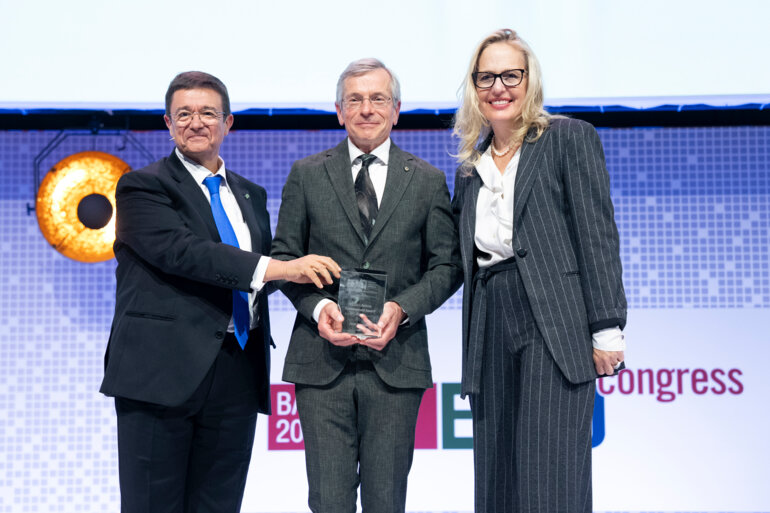Adjuvant immunotherapy is still actual despite heterogeneity on its accessibility in Europe and fast advances in neoadjuvant immunotherapy
Results from randomised clinical trials have established neoadjuvant immunotherapy as a new standard of care for patients with macroscopic, resectable stage ≥IIIB melanoma (N Engl J Med. 2024 Nov 7;391(18):1696-1708; N Engl J Med. 2023 Mar 2;388(9):813-823), which is already integrated into routine clinical practice in some countries (Lancet Oncol. 2025 Jan;26(1):12-14). This approach demonstrated to achieve high pathological response rates and improve disease-free survival compared to standard adjuvant therapy in patients with macroscopic, resectable regional or distant metastases.
However, for a considerable proportion of patients, neoadjuvant immunotherapy is not feasible either due to a diagnosis of non-macroscopic stage III disease (e.g. nodal occult regional metastasis, detected only through sentinel lymph node biopsy), stage IIB/IIC disease, or because neo-adjuvant strategies are not yet available at a local or regional level. As a result, many patients with resected stage ≥IIB melanoma continue to rely on adjuvant anti–PD-1 immunotherapy as their only medical treatment option.
In a recent collaborative analysis with a group of European melanoma specialists, we concluded that adjuvant anti–PD-1 immunotherapy is expected to remain an essential treatment option for a large proportion of patients with resectable melanoma in the coming years (ESMO Open, Volume 10, Issue 3, 104295). Indeed, even for those with resectable stage ≥IIIB melanoma, we estimated that over 40% present with nodal occult disease highlighting a significant gap in neoadjuvant eligibility and reinforcing the importance of adjuvant therapy.
It is well established that adjuvant anti–PD-1 immunotherapy significantly improves recurrence-free survival (RFS) and distant metastasis-free survival (DMFS) in patients with resected stage ≥IIB melanoma, with consistent hazard ratios around 0.6 —i.e. an approximate 40% relative risk reduction— versus observation, as reported in multiple phase III trials (Eur J Cancer. 2024 Nov:211:114327; J Clin Oncol. 2024 May 10;42(14):1619-1624; Annals of Oncology (2024) 35 (suppl_2): S712-S748. 10.1016/annonc/annonc1597). These benefits support the use of adjuvant therapy in patients with stage IIB/C melanoma and stage III disease with microscopic nodal involvement, with some notable exceptions within stage IIIA. However, significant uncertainty persists regarding the long-term benefit-risk balance of adjuvant therapy. To date, no randomised phase III trial has reported mature overall survival (OS) data comparing adjuvant immunotherapy with placebo (observation). The absence of final OS evidence remains a key missing piece to assess the value of adjuvant therapy against well-known clinical and financial toxicities.
Today, we observe a high heterogeneity in reimbursement of adjuvant systemic therapy across Europe, particularly for stage IIB/IIC melanoma, thus complicating treatment decisions especially for patients with lower-risk disease where the absolute benefits are uncertain (EJC Skin Cancer, Volume 2, 100021). While some clinicians and patients may adopt a more cautious approach in the absence of OS data, others consider the delay in recurrence and the potential to prevent metastatic progression sufficient to warrant treatment. Arguably, real-world data on the outcomes of adjuvant treatment in clinical practice, and long-term OS follow-up from ongoing trials will be crucial to refine the benefit–risk profile of current adjuvant therapy and determine its optimal role in the evolving landscape of melanoma care.







